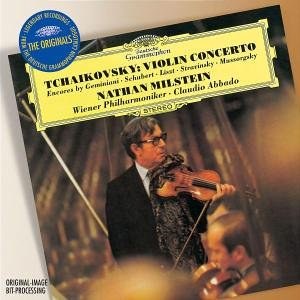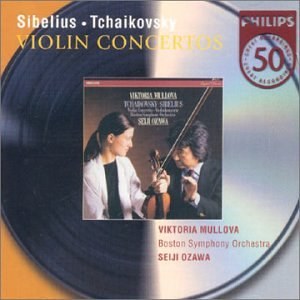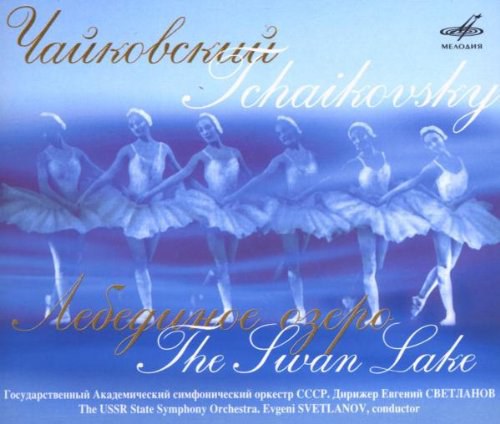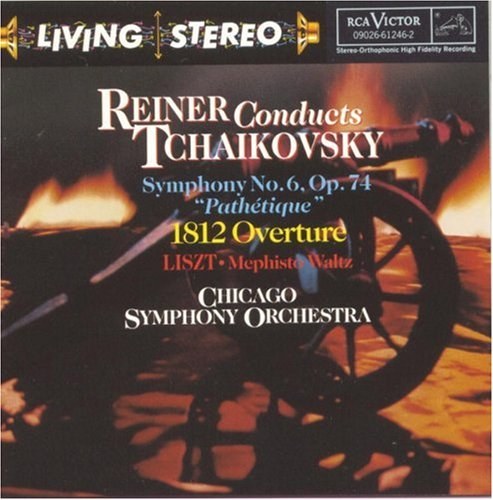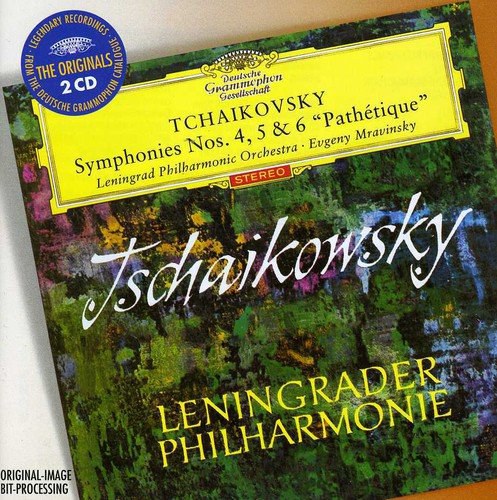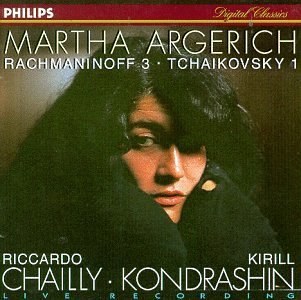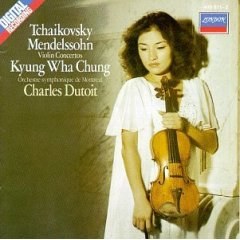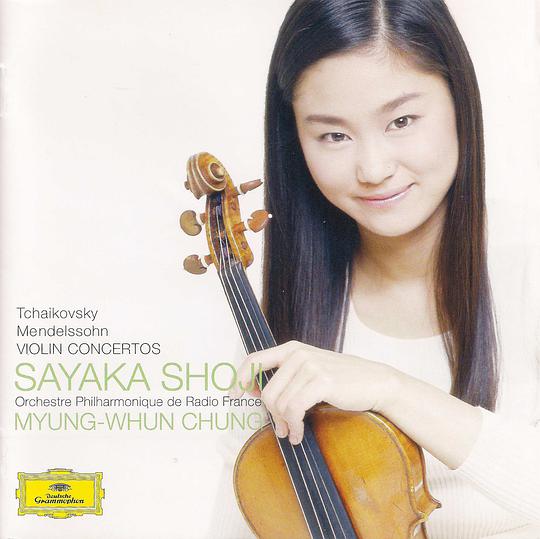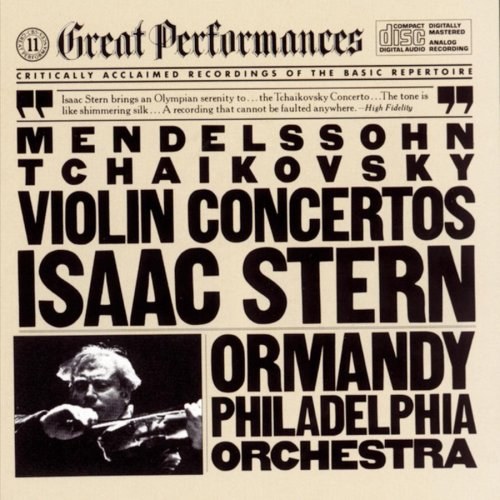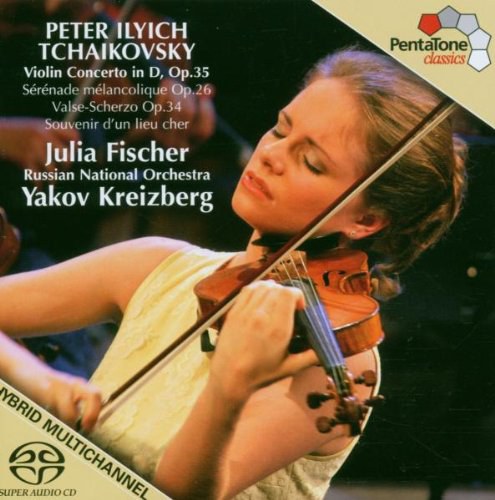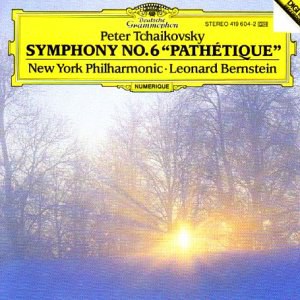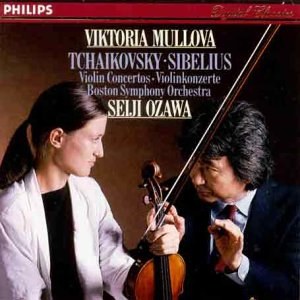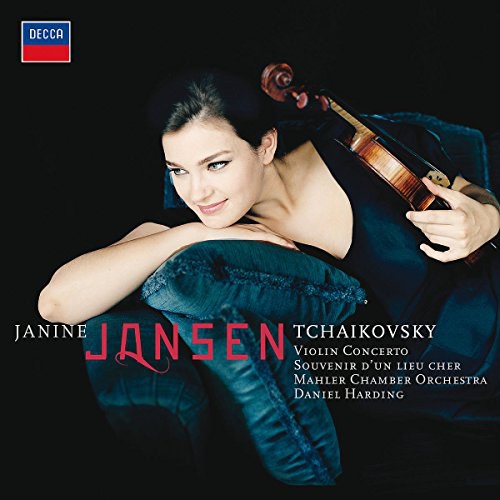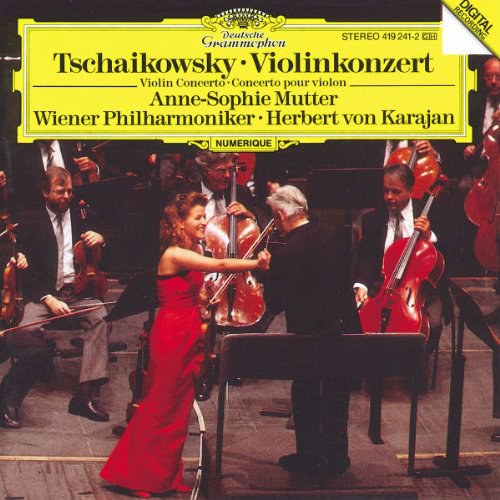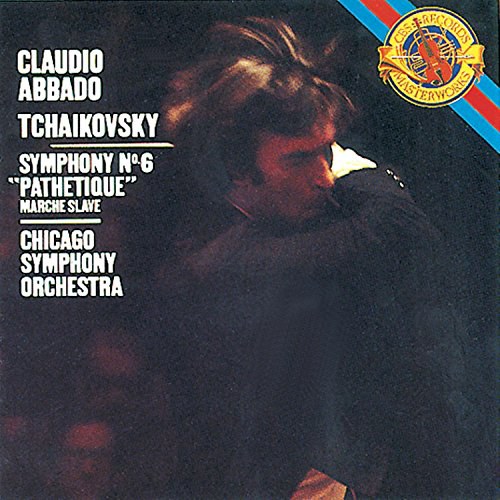More than any other, music from the Romantic era conjures up emotions and memories. It has an immediacy and the ability to carry you away. To me, Tchaikovsky is an outstanding example of this. When I was still a child, I dreamed of the moment I could play his Violin Concerto.” Janine Jansen used to listen to the piece frequently and would watch intently as others took on the challenge. “When I was thirteen I attended my first summer school in the US. A few older teenagers were already working on the Violin Concerto. I borrowed the music and tried to play a few sections, with a view to raising my game by listening to the others. But I wasn’t ready yet.” That, in itself, is nothing to be ashamed of. Tchaikovsky’s Op.35 is considered to be one of the most challenging and lyrical works in the violin repertory. The composer wrote it in 1878 and even gave it priority over another composition — something he had never done before. “It was stronger than myself”, he wrote to friends. At the time, Tchaikovsky was staying in the Swiss town of Clarens with his former student, the young violinist Yosif Kotek, who was closely consulted on the technical aspects of the work.
Despite this help, the planned premiere by the celebrated Leopold Auer fell through because he found the piece unplayable and “unviolinistic.” It would be a long time before both Auer and the music establishment changed their minds. The vitriol poured on the Concerto by the music critic Eduard Hanslick has become notorious: “The violin is no longer played, it is rent asunder, beaten black and blue.” The work was “hideous, music that stinks to the ear.” The highly sensitive Tchaikovsky could quote the review word for word and, despite the audience’s enthusiastic reception, remained deeply wounded by it for the rest of his life.
Jansen has now performed the work many times. “These are special, symbolic moments for me. The first time was in 2000 with the Kirov Orchestra, at the invitation of Valery Gergiev. At first I thought:
I’ll never manage it. The work is long, emotional and technically virtuosic. Not to mention, extremely tricky to memorise. You really need to stay on the ball. Gergiev allowed me to forget the audience and my nerves, as he immersed me in the music. It’s exhilarating to surpass yourself like that.” Jansen also performed the Concerto when she made her London debut with Vladimir Ashkenazy, garnering worldwide praise. “That concert also marked the start of my recording career. Since then I’ve played the piece with various orchestras and conductors, but it never loses its intensity. That’s why it’s great to have a live recording. Of course you are extremely focused during a studio recording, but the concert hall allows more spontaneity. You are inspired by the audience’s anticipation.”
Her relationship with the work has changed over time. “I have the courage to let go of the technical aspects a bit more, which allows me to explore all of its different moods. To immerse myself in the music rather than just work with it.
And that’s essential. The Violin Concerto does not permit routine, it forces you to remain committed, to give everything. That’s my style.”
The piece is rightfully described as an emotional work. Tchaikovsky wrote it during a difficult period in his life. He had recently married one of his conservatory students, in an attempt to deny and suppress his homosexuality. Barely nine weeks later, he could stand it no longer and attempted suicide by trying to catch pneumonia in an icy river. The attempt failed, but the composer suffered a nervous breakdown. His brother Modest took him on a trip to recuperate, a long way away from his wife. “All the same, it’s not a depressing piece”, Jansen reflects. “It’s never maudlin. Intimate and melancholic would be more accurate descriptions. And that’s how I like to play it: without any hysteria or overblown emotions, but simply and honestly.”
The Concerto consists of three movements. “The Allegro moderato is actually a violin concerto in its own right,” according to Jansen. “Tempestuous, passionate, driven, and with a long cadenza in the middle. Most other composers would elaborate a little on this, but Tchaikovsky actually produces a lengthy follow-on, offering a slight variation on what you’ve heard before. A real challenge.” The Finale is similarly distinct, but for Jansen the second movement is the heart of the work. “I love that moment of tranquillity.
From the moment the violin comes in, Tchaikovsky links powerful emotions to a sense of space and simplicity. Such modest means yet so much expression!
It’s extremely intimate, for both listener and musician.” Jansen thinks that it is therefore all the more remarkable that this middle movement was only added later. “The earlier version had another Andante. But both Tchaikovsky and his friend Kotek thought it didn’t work.” Tchaikovsky composed a new slow movement, the Canzonetta, and rewrote his first version for violin and piano which, as “Méditation”, became the first movement of Souvenir d’un lieu cher. “Like the Violin Concerto it is incredibly beautiful. This makes it extra special for me to record both works. The Romanian-Dutch conductor Alexandru Lascae has made a wonderful version for strings of Souvenir, which I have enjoyed playing for years. This is partly why its colour is so completely different from that of the Violin Concerto — more transparent and tranquil. But sensitivity and intimacy epitomise both compositions.”
Jansen is delighted to record the Tchaikovsky Concerto with Daniel Harding. She has worked with him once before, and feels they have a unique musical understanding. “It is so incredibly natural to play with him. We speak the same language in music.” This is Jansen’s first collaboration with the Mahler Chamber Orchestra. “Our paths had crossed before. We socialised together whenever we happened to perform in the same city. In the Netherlands I organise my own chamber music festival where my approach is similar to that of the Mahler Chamber Orchestra: intense, like a family relationship. The players are not just a unit, but above all a meeting of great musicians, of people who really want to speak through their music, who sit on the edge of their seat and communicate that to the audience. That, to me, is the essence of playing music together.”
